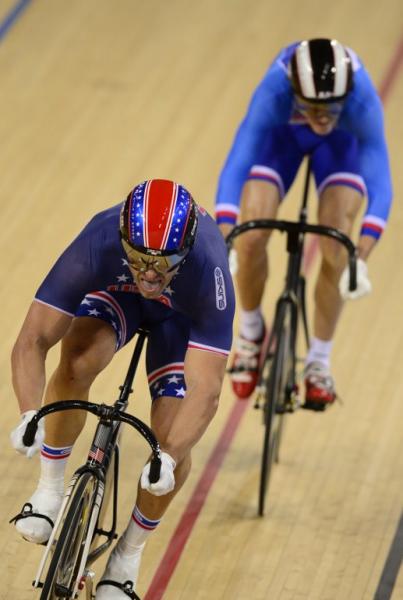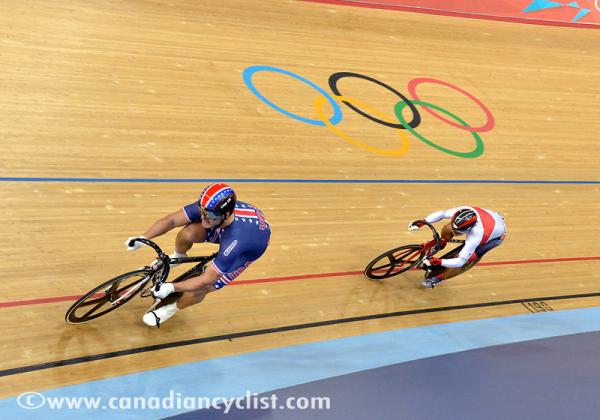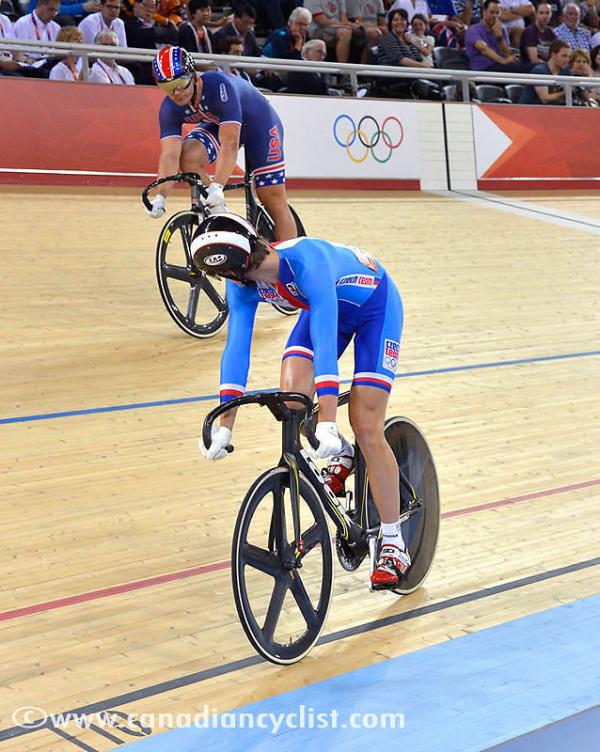Staff passes on Olympic expertise
2008 team sprint gold medalist missing competition



In 2008, Jamie Staff helped bring Olympic team sprint gold to Great Britain in Beijing. At the 2012 Olympic Games in London, Staff is working with several of Great Britain's competitors, passing on his wealth of knowledge and experience to first time Olympians on Team USA. Retired since 2009, Staff still finds it a bit difficult to sit track side and watch his former teammates winning more gold medals.
"It's emotional to some degree, trust me I'd love to be out there racing," Staff told Cyclingnews. "For the first two years after Beijing I wasn't really interested. Then at the World Cup in London (in February) I was track side for the men's team sprint, and I was like, 'I wish I was on the track, I really do'. Even now, I just saw Chris [Hoy] and Jason [Kenny - his 2008 teammates] - and it was like, should I have done another four years?"
Staff, 39, has just one Olympic gold to his name, that of the team sprint in 2008, but held the world championship title twice in team sprint, once in the keirin (2004) and once in BMX (1996). After a long career, the body decides when it is time to quit even if the mind wants to go on. "The aches and pains and injuries - it's life, you have to grow up at some point and move on. I'm happy with my decision, I'm very happy coaching," he said before adding, "Of course anyone would love to get out there and compete in front of a home crowd."
Rather than focusing on himself, the advice he tells all of his riders, Staff, now USA Cycling's sprint coach, puts his efforts into helping riders to cope with the enormity of their first Olympic competition.
"I help Jimmy [Watkins], I have another guy Njisane Phillip, from Trinidad, he lives and trains in Los Angeles, so he's kind of under my wing too. He has his own helpers here. I've had a little input with [Sarah] Hammer on her starts, and have been working with Dotsie [Bausch] and some of the BMX-ers as well."
Staff shares his own experiences and the valuable lessons he learned in his Olympic career (2004, 2008), helping these debutantes deal with the pressure.
"A lot of [the advice] is to focus on yourself. The US media is not paying so much attention on the track cyclists per se. They're not in media focus like GB cyclists are. Nonetheless, there's some attention, it's the Olympics.
Get The Leadout Newsletter
The latest race content, interviews, features, reviews and expert buying guides, direct to your inbox!
"It's amazing what the Olympics does to you as an athlete. It's hard to explain. It's instant pressure, and there is a lack of opportunity [to get used to it] - they're every four years. An athlete might have one or two chances. They have a lot of pressure just to make the team, now they're here.
"I try to help them in the same way the GB sports psychologist Steve Peters helped me, and visualization is a lot of it. Focusing on yourself day to day, effort to effort. I'm just generally trying to give them tools to cope."
He gave the example of preparing riders to deal with the spartan housing in the athlete's village, and the lack of the comforts of home and routine. "An athlete is used to a strict routine, and all of a sudden in the most important event in their lives they're thrown out of their comfort zone. So how do you deal with that? Basically lower expectations, accept things are going to go wrong, things are going to come up, you're going to have obligations - it's all part of being an athlete. It was all a matter of getting them to realize these things before they got here. So it's not a shock, not a surprise."
The philosophy seems to have worked: USA's track team have out-performed their expectations so far, with the women's team pursuit squad netting silver and Watkins advancing through to the sprint quarterfinals.

Laura Weislo has been with Cyclingnews since 2006 after making a switch from a career in science. As Managing Editor, she coordinates coverage for North American events and global news. As former elite-level road racer who dabbled in cyclo-cross and track, Laura has a passion for all three disciplines. When not working she likes to go camping and explore lesser traveled roads, paths and gravel tracks. Laura specialises in covering doping, anti-doping, UCI governance and performing data analysis.